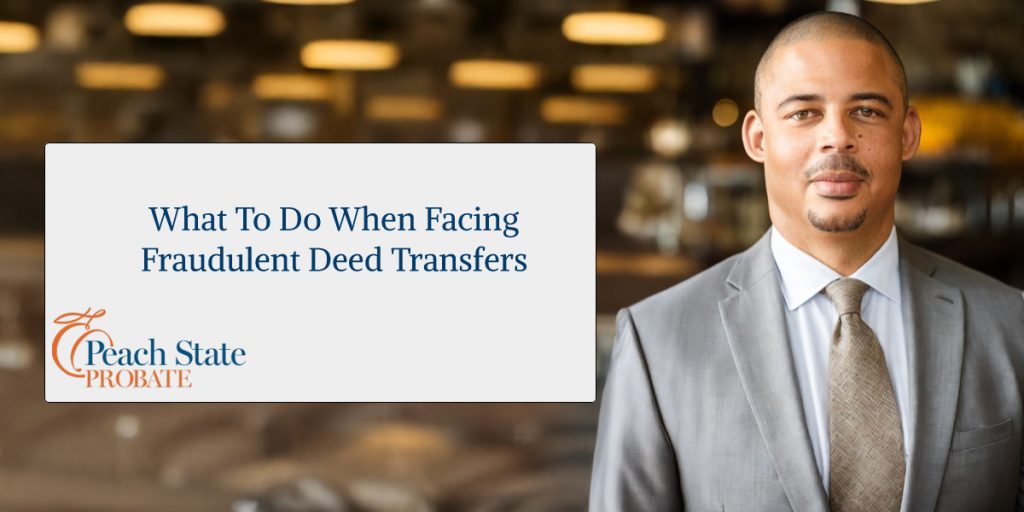## Understanding Fraudulent Deed Transfers
Fraudulent deed transfers refer to unlawful actions where property ownership is maliciously altered without the consent or knowledge of the rightful owner. Often, perpetrators of this crime forge signatures, misrepresent the identity of the property owner, or otherwise manipulate deed documents to take control of a property illegally. It is a serious issue that can lead to significant financial loss and emotional distress for the individuals involved.
Victims of fraudulent deed transfers may find themselves facing challenges that complicate their property ownership status. This can result in disputes over property rights, unanticipated debts associated with the property, or even legal battles to reclaim the rightful ownership. Understanding what fraudulent deed transfers entail is crucial not only for property owners but also for those who may be drawn into a transaction involving real estate.
Legal implications of fraudulent deed transfers can be complex, often necessitating a thorough understanding of property law and other associated regulations. Being informed about these fraudulent activities can help individuals take the necessary protective steps to secure their property and safeguard their rights.
## The Importance of Addressing Fraudulent Deed Transfers
Addressing fraudulent deed transfers is vital for any property owner. The significance of this topic stems from the potential consequences that stem from these activities. When an individual’s property is fraudulently transferred, they may lose more than just ownership of the physical structure; they can lose years of investment, memories, and the sense of security that comes with home ownership. It can take considerable time, effort, and legal resources to resolve such issues.
Additionally, the financial implications can be staggering. Once a fraudulent deed transfer occurs, the victim may be responsible for ongoing taxes, liens, or other financial obligations associated with the property. These unexpected financial burdens can lead to severe financial distress, potentially affecting the victim’s creditworthiness and long-term financial stability.
Furthermore, failing to address fraudulent deed transfers may leave individuals vulnerable to further fraud. Once perpetrators realize they can succeed in manipulating a deed, they may target additional victims. It creates an environment where property owners need to be vigilant and proactive in recognizing and addressing fraudulent activities.
## Legal Context and Considerations for Fraudulent Deed Transfers
Navigating the legal framework surrounding fraudulent deed transfers is essential for protecting one’s property rights. In Georgia, various laws govern property ownership and transactions, often detailing what constitutes a valid transfer and the remedies available for rectifying fraudulent actions. Understanding laws pertaining to property fraud, including statutes on forgery, misrepresentation, and real estate transactions, can empower property owners to assert their rights effectively.
One vital component of this legal framework is the statute of limitations, which dictates the time frame within which victims can seek legal recourse. If individuals wait too long to address fraudulent deed transfers, they may lose the opportunity to recover their property or seek damages. It highlights the importance of timely legal action when confronting potential fraud.
Additionally, legal considerations often involve recording deeds with the appropriate county clerk’s office. There are mandated procedures that ensure newly transferred deeds are filed correctly, and the public has access to this information. Failing to adhere to these procedures can raise questions about the legitimacy of a transfer, making it critical for property owners to remain vigilant about monitoring deed records.
## Real-World Instances of Fraudulent Deed Transfers
Examining real-world examples of fraudulent deed transfers can illuminate the various tactics used by perpetrators and the potential ramifications for victims. One common scenario involves identity theft, where fraudsters assume the identity of a legitimate property owner to transfer ownership of the property into their name. This can occur using stolen personal information, often acquired through data breaches or social engineering tactics.
Another instance might involve a family dispute, where one individual deceptively conveys a property to themselves without transparency regarding the transaction. This type of fraud may arise during family changes, such as divorce or the illness of an elderly relative, where emotions are high and legal oversight may be neglected.
These real-world examples highlight the diverse motivations behind fraudulent deed transfers, whether for financial gain, revenge, or simply taking advantage of vulnerable individuals. They serve as a reminder of the need for vigilance and due diligence in property transactions to protect oneself from falling victim to such fraud.
## Taking Action Against Fraudulent Deed Transfers
When facing fraudulent deed transfers, proactive steps must be taken to protect your property rights and rectify the situation. The first action should involve gathering documentation related to the deed in question, including any corresponding paperwork, communication records, and proof of previous ownership. Establishing a paper trail is critical in building a solid case.
Next, it is advisable to notify your local county clerk’s office or recorder’s office, which maintains property records. Reporting fraudulent activity promptly can help prevent others from falling victim to the same deception and may initiate an investigation into the fraudulent transfer. Requesting that the office flag your property for any future suspicious activity can also prove beneficial.
In some cases, it might be necessary to file a lawsuit to restore ownership or seek damages from the perpetrator. Filing for a quiet title action allows a property owner to resolve competing claims regarding ownership. This legal procedure is directly related to establishing rightful ownership in disputes involving fraudulent deed transfers and can help clarify title matters in court.
## Pitfalls to Avoid in Fraudulent Deed Transfer Situations
Though facing fraudulent deed transfers can be stressful, there are common pitfalls that individuals should avoid to enhance the likelihood of a favorable outcome. A prevalent mistake is failing to act quickly upon discovering potential fraud. The longer one waits, the more complicated the situation may become, and rights may diminish due to statutory limitations. Prompt action is crucial in safeguarding one’s rights.
Moreover, many individuals may make the error of relying solely on verbal promises or informal agreements related to real property transactions. It is essential to document all agreements in writing and seek formal legal advice during any transfer of property ownership. Relying on amateur advice or trusting unverified sources can lead to greater problems down the line.
Another pitfall is underestimating the complexity of navigating legal systems. Individuals often approach these cases with the belief that they can resolve matters solely through self-representation or informal negotiations. Although resolving a fraudulent deed transfer may seem straightforward, legal processes can be intricate. Consulting a legal professional who is well-versed in property law can significantly increase the chances of a successful resolution.
## Knowing When to Seek Legal Counsel for Fraudulent Deed Transfers
Determining when to seek legal counsel in situations involving fraudulent deed transfers can be essential for protecting your rights and assets. If individuals discover any signs of unauthorized transfers or note discrepancies in their property records, consulting with a legal professional is advisable. Early intervention can often mitigate further complications down the line and provide clarity on the best course of action.
Moreover, if individuals feel overwhelmed by the process of rectifying the fraudulent deed or face threats from the alleged perpetrator, reaching out for legal help is crucial. Legal professionals can not only offer guidance but can also provide representation if disputes escalate into litigation. Through their knowledge of property law and real estate practices, legal counsel can navigate the complexities of the situation effectively.
Additionally, if you are involved in a family dispute that has led to potential fraudulent actions regarding property, understanding the options available can be complex and emotionally charged. Seeking the guidance of a legal professional can lend direction, clarity, and support during challenging times. They can assist in mediating family conversations and advocating for your rights while ensuring compliance with property laws.
## The Advantages of Legal Representation in Cases of Fraudulent Deed Transfers
Opting for legal representation when confronting fraudulent deed transfers can provide numerous advantages. First and foremost, attorneys bring in-depth knowledge of property law, which is crucial when addressing complex issues that may arise. They can help navigate legal proceedings efficiently, ensuring that the case adheres to relevant regulations and timelines.
Legal professionals know how to analyze the particulars of each case, identifying potential avenues for recovery or recourse. They can craft effective strategies for challenging fraudulent actions, whether through litigation or negotiation. Their experience equips them with insight into how similar cases have been successfully resolved, which can help inform your decisions moving forward.
Moreover, having legal representation can alleviate some stress associated with the legal process. Engaging an attorney allows individuals to focus on their personal life and mental well-being while entrusting their case to a professional. Support and guidance through litigation, negotiations, or other legal avenues can allow clients to maintain control over their situation while working toward a resolution.
## How Peach State Probate Can Assist You with Fraudulent Deed Transfers
Peach State Probate is dedicated to serving clients throughout Georgia faced with the complexities of fraudulent deed transfers. Their understanding of property law, along with their focus on protection for individuals encountering these situations, ensures that clients receive personalized and effective legal assistance. The attorneys at Peach State Probate are committed to advocating for clients’ rights and guiding them through challenging circumstances.
The firm not only assists in identifying instances of fraudulent deeds but also helps clients develop proactive strategies to safeguard their property. With a focus on timely and effective resolution, Peach State Probate aims to minimize the emotional and financial toll on clients navigating such daunting issues.
Furthermore, engagement with Peach State Probate provides clients access to a network of resources, ensuring comprehensive legal support. From filing necessary legal documents to representing clients in court proceedings, their commitment to justice means clients can trust that their cases are in capable hands.




